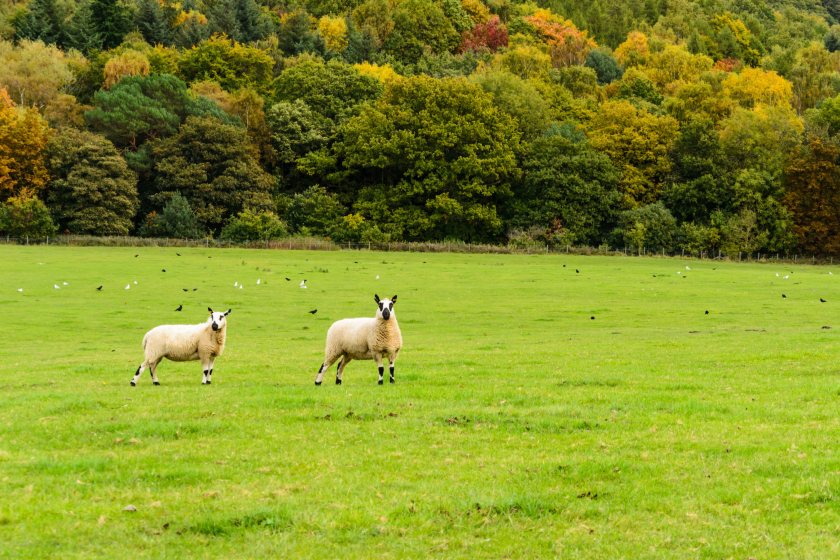Wales to move to single national bluetongue zone

Wales will move to a single national bluetongue restricted zone (RZ) from 10 November, in a bid to simplify disease controls and strengthen surveillance as cooler weather reduces the risk of transmission.
The move replaces the existing Temporary Control Zone with a unified national approach. Officials say the decision reflects falling temperatures and reduced midge activity, which have lowered the risk of spread while allowing for more coordinated monitoring and vaccination efforts.
Since the start of the 2025–26 vector season in July, 141 cases of bluetongue have been confirmed across Britain, including 127 of the BTV-3 strain, two of BTV-8, and one mixed BTV-3/BTV-8 case in England.
There have been 11 cases in Wales—seven of them within the former Temporary Control Zone—and none in Scotland.
NFU Cymru has welcomed the Welsh government’s decision, saying the new structure will simplify compliance for farmers and livestock markets.
The union's president Aled Jones said farm leaders had long called for a whole-country zone to make disease control more practical.
“We welcome the announcement by the Deputy First Minister Huw Irranca-Davies that an all-Wales restricted zone for bluetongue serotype 3 will be introduced from 10 November,” he said.
“The move to a whole country RZ is something NFU Cymru has been calling for, and at the roundtable we expressed our strong support for this way forward.”
Jones said the timing of the change was appropriate but warned that any future controls should balance animal health risks with the economic realities of farm businesses.
“With temperatures dropping, it is right to move to this approach,” he said. “All along we have said the risks of the disease must be balanced against the economic and practical costs of the controls.”
NFU Cymru is urging farmers to stay alert and to report any suspicion of Bluetongue to the Animal and Plant Health Agency (APHA) immediately.
Jones added that vaccination remains the most effective defence against the virus: “We believe that vaccination represents the best way of protecting our flocks and herds in Wales, and we continue to recommend that farmers discuss the potential benefits with their private vet to decide if it is right for them.”
Plaid Cymru’s Shadow Minister for Rural Affairs, Llyr Gruffydd, said the move would bring much-needed clarity after “a hugely challenging period” for Welsh farmers.
“The announcement of an all-Wales restricted zone for BTV-3 will come as welcome news for our farmers and livestock markets,” he said.
“Whilst risk of transmission is now lower, it doesn’t mean that bluetongue has gone away. We must all use this winter to prepare for the next active transmission period for the disease in the spring.”
Gruffydd also urged ministers to go further in promoting vaccination uptake, warning that ongoing vigilance was vital.
“I therefore reiterate my call on the Welsh government to do more to incentivise the take-up of vaccination,” he said. “It’s still the most effective way to help keep bluetongue at bay”
With the all-Wales Restricted Zone now in place, surveillance and vaccination efforts will continue through winter ahead of the next high-risk period in spring 2026.
Veterinary experts say continued monitoring will be crucial to ensuring the disease remains contained as conditions warm.








